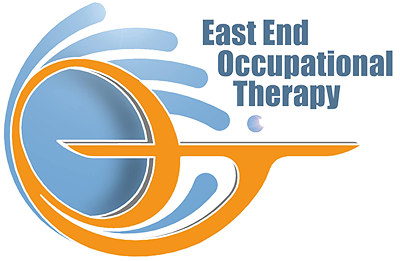Occupational Therapy In Sayville
What Does An Occupational Therapist Do?
Occupational therapy has become more and more popular as a career choice in recent years. While more people are looking for jobs in this field, many people still don’t know what an occupational therapist is and what they do. An occupational therapist helps all kinds of people dealing with many different complications to manage their symptoms and conditions. The main goal is to help patients be able to fully regain functionality in their everyday life. This means they can help all kinds of people to help them get back to work or everyday activities like walking, talking, cooking, and many more. They also work with all kinds of people, from elderly folks to help them with everyday tasks, or adults with work-related issues, and even children to help with injuries, conditions, or disabilities. If you or a loved one require occupational therapy in Sayville, reach out to us at East End Occupational Therapy and see what we have to offer.

To help patients an occupational therapist will start with a few personalized and customized steps. These steps can include:
- Observe the patient in different settings as needed, ask the patient and family questions, and review medical history to evaluate the patient’s needs and conditions.
- Use said observations to develop a treatment plan for patients depending on their issues and needs.
- Educate family, friends, and employers to help accommodate the patient
- Evaluating home, school and workplace to improve these places for the patient
With these starting steps, an occupational therapist can help their patients to start getting back on their feet. These help the therapist plan out a treatment or help plan for their patients and get them moving on in their life.
Who can an Occupational Therapist help
Adults
Occupational therapists can help people with all kinds of disabilities to be able to do everyday activities again. They can help patients manage painful conditions brought on by their disability, especially ones that prevent function due to pain. In the case of cerebral palsy, they can give the patient appropriate equipment such as braces, wheelchairs, and even eating aids. They can also help patients with arthritis manage fine motor skill issues, pain in the joints and hands, and help them regain functionality. Along with these, many disabilities can be managed with the help of an occupational therapist. To speak with an occupational therapy in Sayville to learn more about how they can help you, contact us at East End Occupational Therapy!
Occupational therapists also work with patients with mental health problems and disabilities. These therapists work with patients that have developmental disabilities, mental illness, and emotional problems. They help these patients manage their complications and engage in a more fulfilling everyday life. They work with patients on anything from developing life skills such as management, budgeting, and social skills to working on specific tasks that may be difficult or compromised due to the patient’s condition.
Elderly
Occupational therapists can also work with the elderly to help them regain or develop independence and live a more full life. They can help manage wear and tear complications that develop in the elderly, from pain management to physical therapy to improve mobility and function in the elderly’s everyday life. They can also assess the environment of the elderly, creating a more functional work and life space, removing hazards or other obstacles that can become a hindrance in that person’s life, and work with the patient to become more functionally independent. If your loved one needs occupational therapy in Sayville, East End Occupational Therapy can be there to help!

Pediatrics
Additionally, occupational therapists can help children and students who have complications that hinder development, learning, and growth. Many conditions can put a child at risk of delaying social and learning skills. Some of these conditions include:
- Birth complications
- Traumatic injuries
- Pervasive developmental disorders
- Development problems
- Spina bifida
- Chronic illnesses such as cerebral palsy
In addition to these, children who have sensory processing disorders may be difficult to diagnose, but these disorders can hinder a child’s growth if not managed properly. Sensory processing disorders include hypersensitivity and hyposensitivity, both of which can majorly impair your child at home or in school.
However, an occupational therapist can help your child manage conditions such as these. An occupational therapist can work with your child by:
- Improving motor skills
- Addressing issues such as hand-eye coordination
- Learning basics tasks naturally
- Maintaining a more positive behavior
- Improving attention and social skills
- Recommend specialized and personalized tools to help your child
Occupational therapy can be used to help a wide range of patients dealing with many different complications. The use of specialized techniques customized to your specific needs can be a great help to many different people. To find out what an occupational therapist can do for you, reach out to us at East End Occupational Therapy, and to receive quality and trusted occupational therapy in Sayville.
What Are The Different Types Of Occupational Therapy?
On occasion, people who want to complete certain activities or tasks are unable to, as a result of physical or emotional limitations. At East End Occupational Therapy, we do not want to let these unfortunate limitations prevent you from living your everyday life. That is why we offer occupational therapy for all of our patients who need treatment. To learn more about this medical specialty, and the different types of occupational therapy we offer, continue to read.

What Is Occupational Therapy?
Occupational therapy is a service that helps patients gain or regain skills that allow them to complete everyday tasks. The job of an occupational therapist is to teach patients new ways to complete these tasks or to help them relearn the bodily mechanisms that were initially lost. In some cases where movement or physical ability was lost, our occupational therapists may create or prescribe the use of assistive devices to allow patients to maintain independence in their daily lives. Some of the most common activities we can help patients learn to complete include:
- Bathing.
- Getting dressed.
- Eating.
- Moving around freely.
- School or work-related tasks.
What To Expect
If occupational therapy has been recommended to you or a loved one, but you are unsure of what to expect, the process can be a bit nerve-racking. To help ease any stress, our team would like to lay out what you can expect to take place during your OT session. During your initial visits, our occupational therapists will help determine what goals you are looking to meet. Once these goals are set, sessions are shifted towards education and training. This training can focus on any of the following:
- Mental tasks.
- Strength.
- Balance.
- Coordination.
- Social interaction.
The Different Types Of Occupational Therapy
When it comes to occupational therapy, multiple types will be beneficial to different patients. Understanding what this service can bring will help determine if it is right for you or a loved one. Examples of the different types of occupational therapy that are offered can be found below:
General Occupation Therapy

In its most overarching form, general occupational therapy focuses on helping patients whose functional capabilities are impacted by pain, injury, disability, or illness. It can help:
- Children complete tasks at school.
- Adults manage their work responsibilities.
- Teach self care skills so people can remain independent.
- Allow patients to participate in sports or remain active.
Patients of all ages can benefit from this form of occupational therapy, as sometimes all they need is a little help to get their lives back on track.
Pediatric Occupational Therapy
As the name suggests, pediatric occupational therapy focuses on helping children. Several different stimulants could culminate in your child needing OT care, such as any of the following conditions:
- ADHD.
- Developmental disorders.
- Poor vision or hearing.
- School trouble.
- Learning disabilities.

Occupational Therapy For Autism
Autism is a condition that falls onto a wide spectrum of severity and affects people of all ages. Occupational therapy can be used to help those dealing with this condition. These sessions can take place at school, daycare, or even from their home.
Geriatric Occupational Therapy
As people age, we tend to lose control of bodily functions slowly. This loss of autonomy can be difficult to deal with, as many people fear they will be unable to remain independent as a result of these developments. Geriatric occupational therapy can help the older generations cope with and manage their new limitations, so they don’t have to give up their right to live happily on their own.
Occupational Therapy in Sayville For Mental Health
Occupational therapy for mental health is a continually growing field. Your mental health should always be treated with the utmost importance, and our occupational therapists can help patients learn efficient methods of self-care. Conditions occupational therapy is used for can include the following:
- Panic attacks.
- Depression.
- Schizophrenia.
- Bipolar disorder.
Environmental Modification
One final type of occupational therapy worth mentioning is environmental modification. Occupational therapists who specialize in this field will look around your home, school, or workplace to see if any modifications can be made to make your life easier. This process can include installing the following for your benefit:
- Ramps.
- Wider doors.
- Support bars in restrooms.
- Lower or higher cabinets.
Contact Us
At East End Occupational Therapy in Sayville, we want all of our patients to be able to live their lives to the fullest. If you or a loved one needs occupational therapy, you can trust that our team will provide the services that you need. For more information on this form of care, don’t hesitate to contact us today.
Can Occupational Therapy Help With A Torn Rotator Cuff?
Have you been feeling a dull ache in your shoulders? Do simple tasks such as raising your arms become difficult? Do you work in construction or carpentry and have noticed any symptoms in your shoulders? Then you may be experiencing a rotator cuff injury. Luckily our team at East End Occupational Therapy is ready to assess the issue. If you’re looking for occupational therapy in Sayville, contact us today. Our well-equipped occupational therapist will evaluate the issue and develop an individualized treatment plan to help you recover.
What is a Rotator Cuff Injury?

In your shoulders, a rotator cuff is a group of muscles that surround the shoulder joint. It helps keep the head of your upper arm strongly within the socket of your shoulder, allowing you to lift and rotate your arms freely. Because they are in a tight space, injury can happen.
Injury mostly occurs in people who repeatedly perform motions with their shoulders in their jobs, such as overhead activity or heavy lifting, for example, construction. Repetitive movements over a prolonged period in the shoulders can cause inflammation.
It is usually the result of a single injury and medical attention is needed immediately. If the muscle tears, surgery may be required however, most people recover with occupational therapy exercises that improve flexibility and strength in the shoulders.
Symptoms
Pain is the most common symptom when experiencing a rotator cuff injury. It is noticeable when you lift your arm up or down. It can make simple tasks such as combing your hair, or putting your arms through your sleeves difficult. Other symptoms include:
- Dull, aching pain when sleeping on the affected shoulder.
- Arm weakness.
- Pain when reaching your arms out.
- Unable to lift things
Causes
Rotator cuff injuries can happen in two ways. It can happen once such as lifting heavy objects, falling on the shoulder, or forcing the shoulder in an awkward position. It can happen over a long period of overuse such as:
- Athletes who use their shoulders in a repeated motion such as tennis or baseball players.
- Repetitive lifting jobs such as carpentry, painting, constructions, etc.
- People over the age of 40.

There are various risk factors to keep in mind such as:
- Age- The older you get, the likelihood of rotator cuff injury to occur increases.
- Family history- Genetics can play a role as certain families are linked to shoulder injuries.
- Construction jobs- These types of jobs often require repetitive arm motions which damage the rotator cuff over time.
If pain persists for more than a few weeks, then it is time to contact East End Occupational Therapy. Our occupational therapy in Sayville will assess the issue and help you regain motion and flexibility in your shoulders.
Prevention and Treatment
If you’re an athlete or work in occupations that require utilizing the shoulders you are advised to take breaks frequently. It can help to take the load off of your shoulders. Additionally, performing strength training shoulder exercises can help with motion and prevent “frozen shoulders” after injury. Occupational therapy in Sayville, will suggest various types of exercises that you can perform to improve functions in your shoulders.
If you’re currently experiencing a rotator cuff injury, here are some tips to follow.
- Take over the counter pain relievers such as ibuprofen.
- Apply ice or hot packs on the affected area.
- Avoid sleeping or resting on the affected shoulder.
- Do not lift your arms up unless instructed too.
How can East End Occupational Therapy Help?
If you’re looking for Occupational Therapy in Sayville, contact us today at East End Occupational Therapy. Our Occupational therapist will develop a treatment plan that will relieve pain, strengthen the shoulders, and prevent future injuries from occurring.




